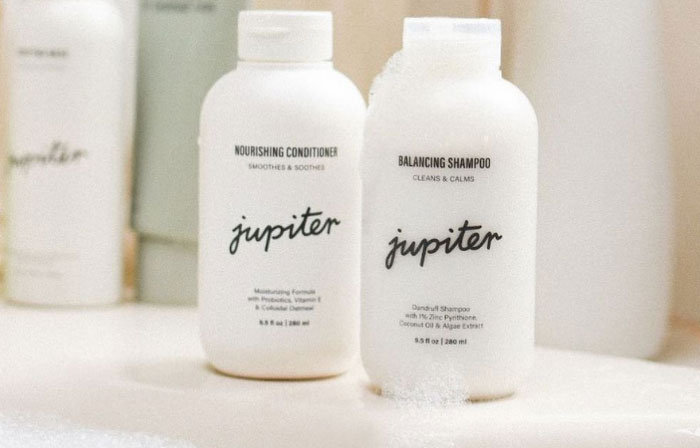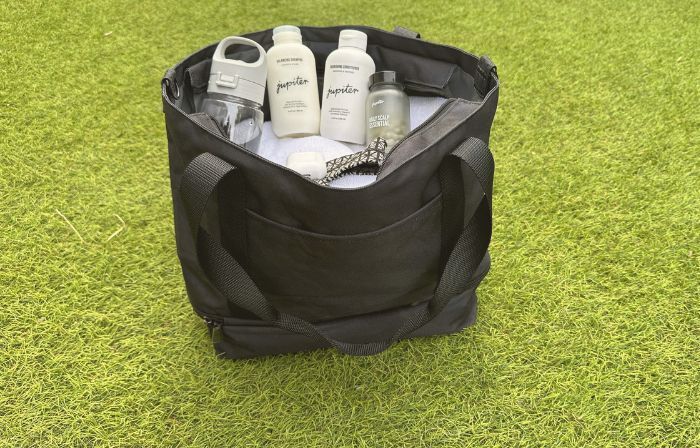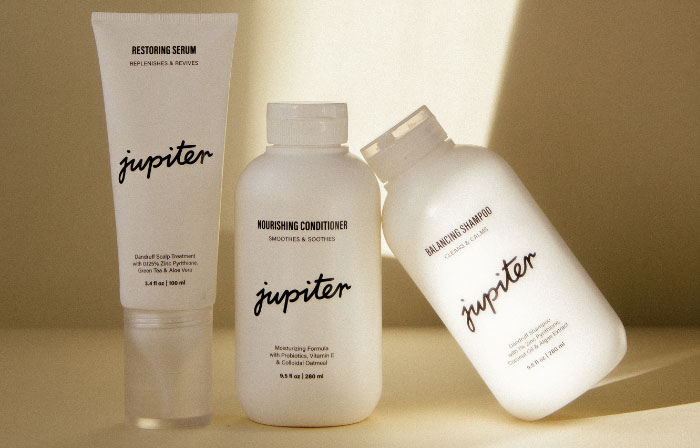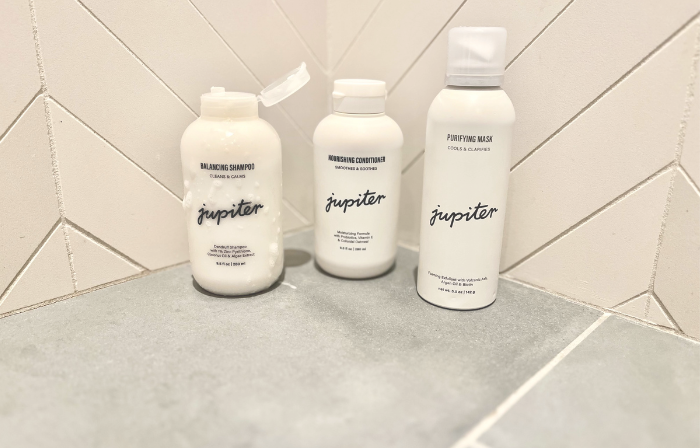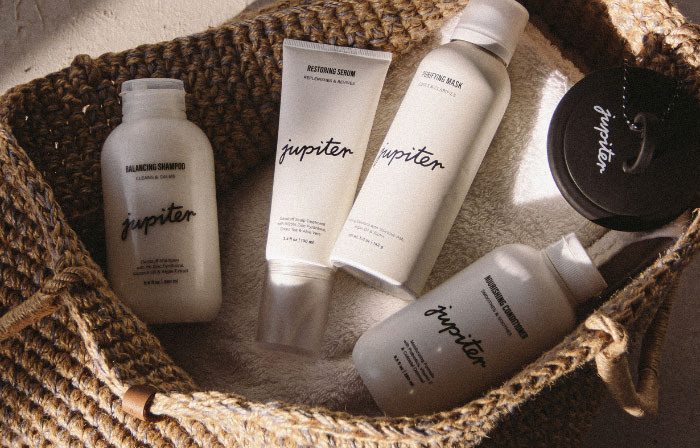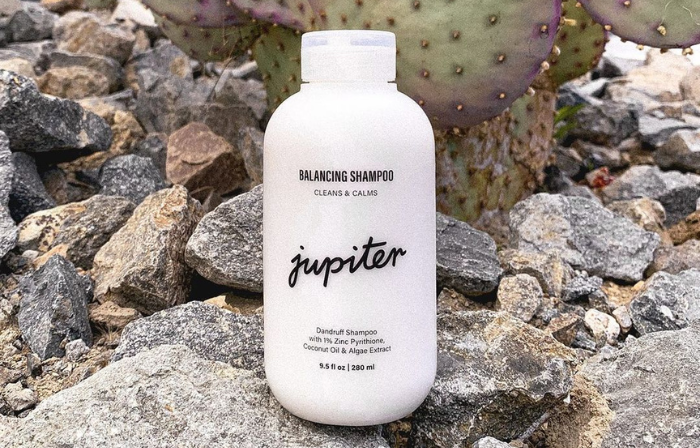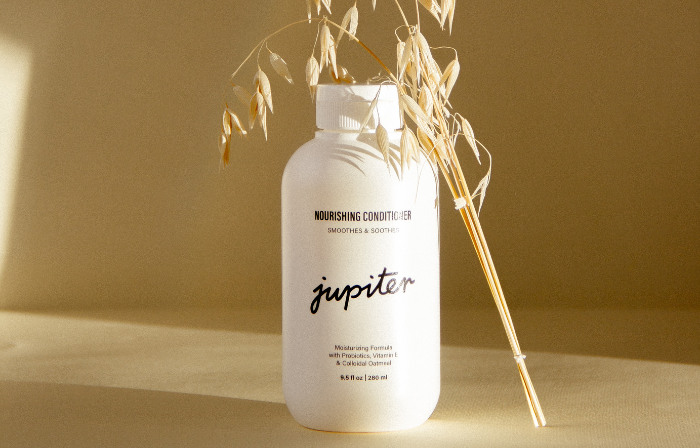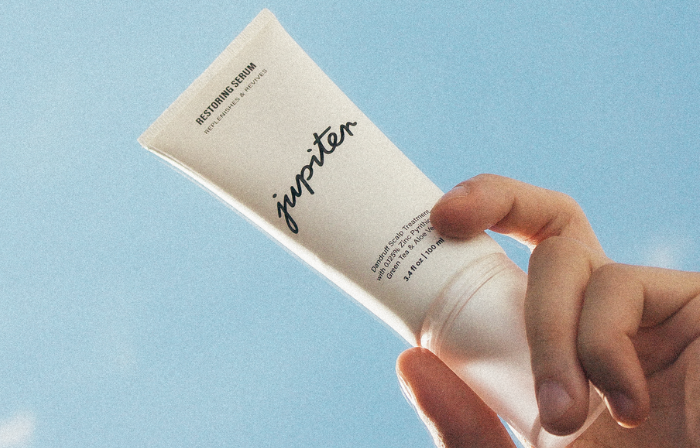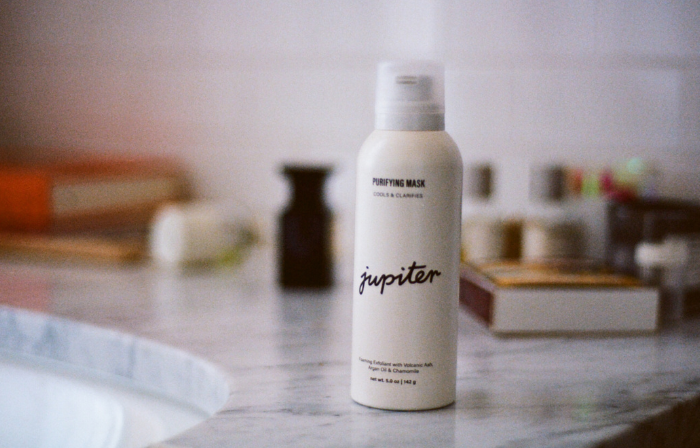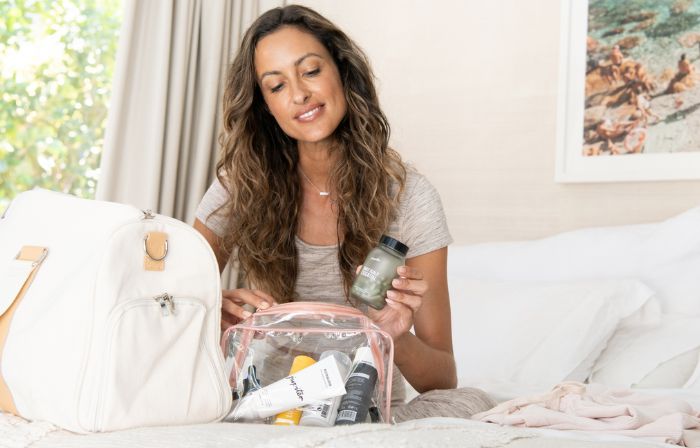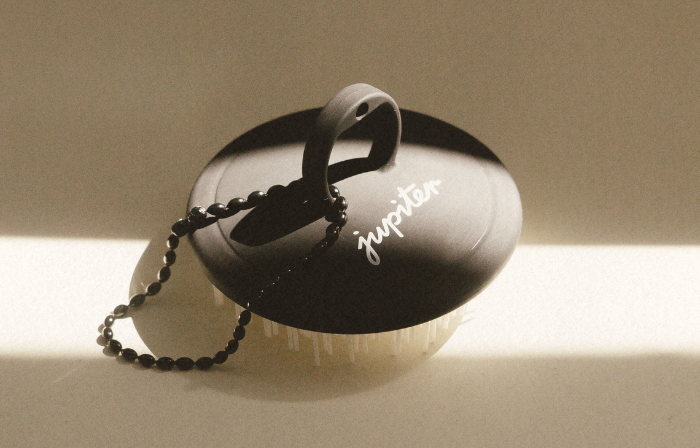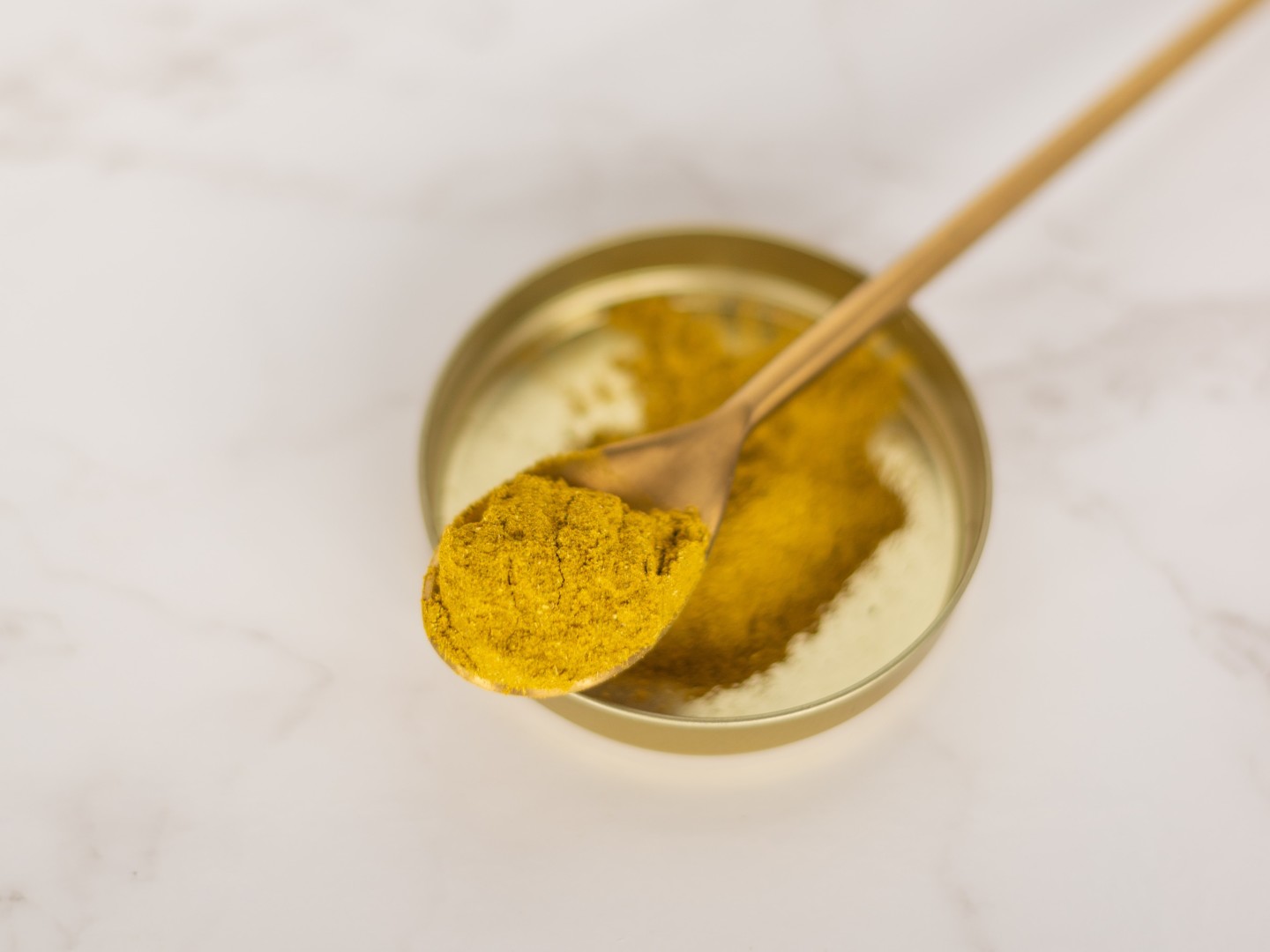🫶🏻 OUR 5% PLEDGE TO HER
#STRONGHERTHANYESTERDAY - WE DONATE 5% TO WOMEN-DRIVEN CHARITIES. LEARN MORE.
If you’ve traveled around the sun more than a few times, you’re probably familiar with how quickly a trend can pop up. For that matter, you’re also probably familiar with how quickly a trend can fizzle out.
In fashion, this has meant low-rise jeans, shoulder pads, and fingerless gloves. In hair and skincare, trends take on a different shape.
One day everyone will tell you to douse yourself in lavender for hair growth. The next they’re saying you need to smother egg whites over the top of your head for smooth hair.
From heatless curls to chemical perms to dutch braids, for many of us, our hair has served as a testing ground for the latest and greatest trends. So, how can you tell a trend from the real deal? We have a proposal: check out turmeric.
Turmeric is especially buzzy because it’s not just rising the charts in skin and hair care. It’s also dominating the diet and nutrition scene.
Today, we’re going to find out if all the commotion is deserved. Is turmeric really all it’s cracked up to be? Let’s discuss the proven benefits.
The History of Turmeric
Turmeric may be the star of the latest health and wellness trend, but the spice has been around for a long time. In fact, many South Asian countries may scoff at the idea of it being a newfound sensation.
Turmeric is massively popular in Indian and Middle Eastern culture, including food, cosmetics, and medicine. Because of turmeric’s natural anti-swelling properties, it’s been used to help address many health issues.
The use of turmeric has traditionally been treated as herbal or alternative medicine by Western doctors. That’s started to change in recent years as more studies have proven turmeric’s ability to help inhibit the growth of potentially dangerous skin conditions. It can help prevent carcinogenesis by stopping mutation and detoxifying carcinogens. In other words, it’s one of the most powerful natural remedies we have.
The Five Main Benefits of Turmeric for Scalp Health
Now that we’ve covered all that turmeric can do, let’s focus specifically on our area of specialty: scalp and hair care.
Research is underway on how turmeric can help improve scalp health, and there are encouraging pieces of science that indicate it can go a long way in helping to stimulate healthy hair growth.
Reducing Hair Loss
Bear with us, we’re going to get a little nerdy on the chemistry here. Much of turmeric’s potent power comes from curcumin, a biologically active polyphenolic compound found within the turmeric.
Among other benefits, curcumin is known to prevent the overgrowth of a hormone called dihydrotestosterone, or DHT. Many consider DHT to contribute to hair loss in both men and women. Interestingly, when we, especially men, first encounter the DHT hormone in our system, it alerts the body to go through puberty. It says now is the time to grow body hair and increase muscle mass.
However, later on in life, the same hormone links up to hair follicles on our scalps and tells them it’s time to shrink up. Suddenly, we’re experiencing hair loss.
Early studies have shown that curcumin can block the action of the enzyme that produces DHT, effectively lowering its prevalence in our bodies. The science suggests that less DHT may mean less hair loss.
Stimulating Hair Growth
Interestingly, turmeric may not only help reduce the risk of hair loss, it has also been tied to the production of new hair, making it a unique two-for-one solution for a full head of healthy hair.
There’s evidence that the curcumin found inside turmeric may help inspire the development of new blood vessels. An increase of blood flow to the skin of the scalp can be helpful to the growth of new healthy hair.
Circulation is vital to the production of healthy skin and the regeneration of hair follicles. There’s no other way to say it; healthy hair starts with a healthy scalp.
The same principle of increased circulation associated with hair growth makes scalp brushes an effective tool in promoting a healthy looking head of hair. All that exfoliation helps bring new blood to the area under the surface, which is imperative for healthy hair growth.
Soothing Redness and Swelling of the Scalp
Redness and swelling are the telltale sign of so many health issues. Skin and hair care is no exception. Swollen and irritated patches of your scalp cannot and will not produce smooth, strong, and healthy-looking hair.
What’s more, it also makes for an uncomfortable experience. Anyone who has ever experienced scalp discomfort knows what we’re talking about. It’s not fun.
As we mentioned above, turmeric has natural anti-inflammatory properties that may help soothe redness and swelling associated with scalp discomfort and many other health issues. And, if you have a rash or open wound, turmeric may even help induce quicker healing.
...turmeric has natural anti-inflammatory properties that may help soothe redness and swelling associated with scalp discomfort.
Promoting Scalp Health
Reducing swelling is not the only trick up turmeric’s sleeve when it comes to scalp care.
Our scalps constitute a delicate microbiome. Fungi, bacteria, skin cells, and oils all interact and communicate. When everything is working, dead skin and sebum are quickly replaced with new healthy skin. The microbiome is balanced.
When that balance is disturbed, our scalp starts to experience damage. This can result in dandruff (flaking, itching, and redness), oily build-up, or general irritation. In addition to containing anti-inflammatory properties, turmeric may also help prevent fungal growth, according to early studies.
As many scalp issues, including dandruff, are tied to an overgrowth of fungi feeding on sebum or the natural oils on our head, the antifungal potential of turmeric is an exciting development.
Protecting The Scalp from Environmental Stressors
Last but not least, are turmeric’s antioxidant properties. An antioxidant is one of those words that gets thrown around a lot in marketing for food and skincare products, but we’re not so sure most people have wrapped their heads around the science. Let’s dive in.
Our bodies naturally produce free radicals after we exercise or process food or they are introduced via external sources like sunlight and air pollution. Free radicals have become the study of much medical research because they are highly unstable and can result in oxidative stress.
Stress at the cellular level can lead to real damage and can contribute to the development of a variety of health issues. Antioxidants can prevent or slow that damage, and that is why antioxidants like Vitamin C are pushed so hard by nutritionists. Their ability to help cells doesn’t stop at nutrition.
When applied to the skin, antioxidants can help restore your skin and promote skin regeneration. For the scalp, that means they can protect the integrity of the delicate skin there. As the scalp is prone to damage, especially from the sun, that can make a big difference.
How To Incorporate Turmeric Into Your Hair Care Routine
You might be already reaching for your spice cabinet by now. We can’t blame you given all the benefits of turmeric.
Before you start sprinkling it in everything you eat or go making a DIY hair mask, we have a couple of tips for getting the most out of this special spice.
It’s actually quite difficult for our bodies to fully absorb turmeric and its components. Curcumin is considered to have limited bioavailability because it has low solubility in water.
Long story short, turmeric needs to be eaten alongside something else that makes it easier for our bodies to process the spice and reap its benefits. One such helper is fat. Curcumin binds to fat cells from foods like coconut oil or full-fat dairy. If you’re taking a turmeric supplement, try pairing it with a meal that will help the spice go a little bit further in your gut.
Many hair care products and scalp supplements contain turmeric in their formulas. With the many benefits linked to this ingredient, it was important to include in our Daily Scalp Essential. Packed with some of the best plant-based ingredients Mother Earth has to offer including turmeric, ashwagandha root, and adaptogenic mushrooms.
Remember to have fun with your hair care journey, while also maintaining a comprehensive hair care routine that removes unhealthy buildup, gets your microbiome back in balance, and promotes a healthy scalp. Jupiter's line of scalp healthy hair care products provide just that. Learn more about which products best suit your hair and scalp here.
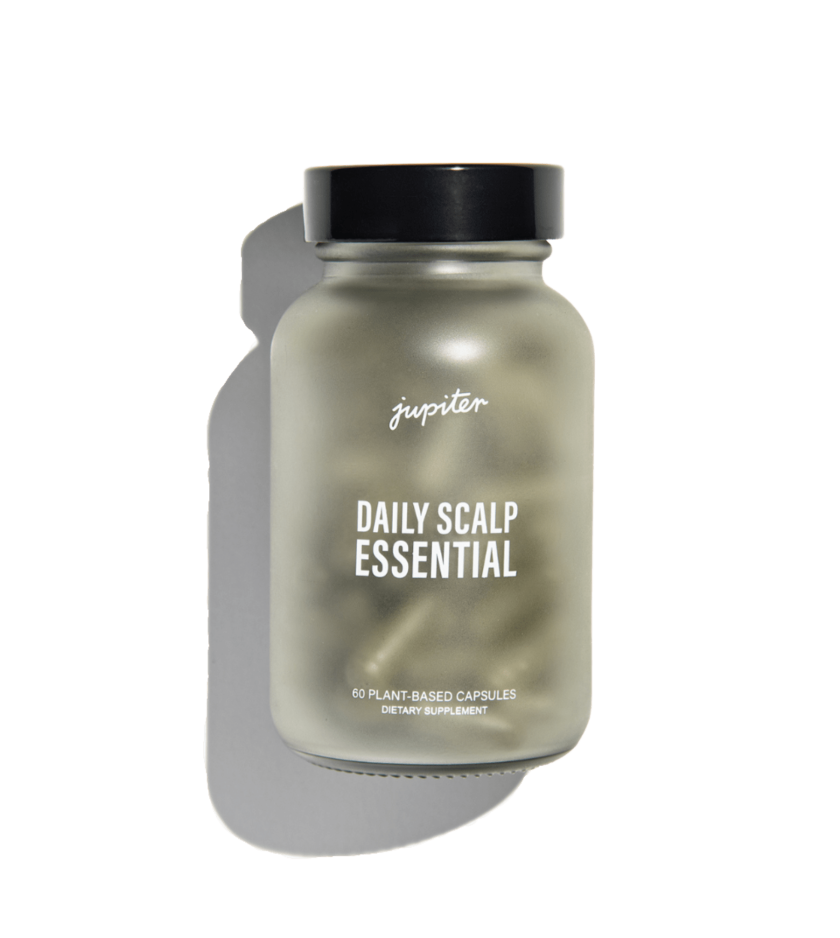
For dandruff-related hair loss, look no further. This must-have supplement is formulated with some of the best plant-based ingredients Mother Earth has to offer. Key vitamins, minerals, and nutrients support hair growth, stronger hair, and a moisturized scalp.
